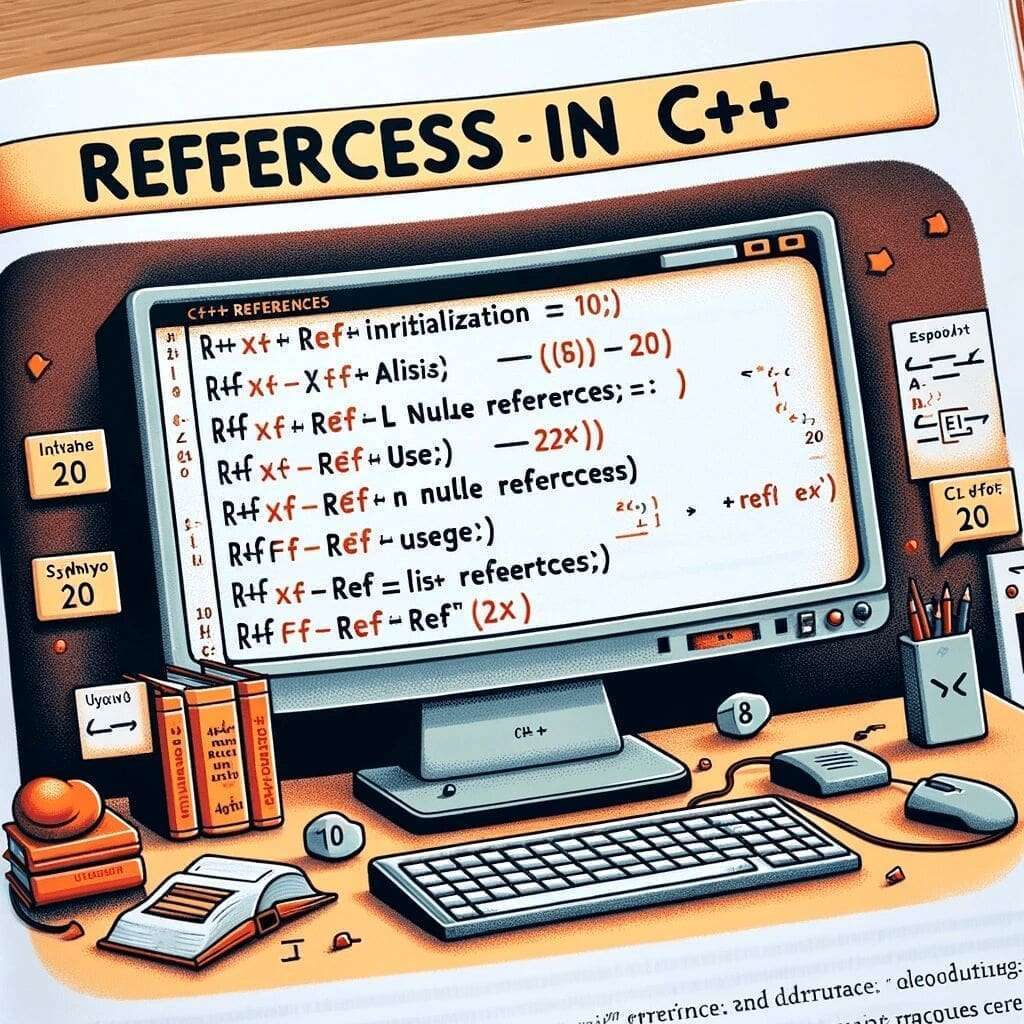
FAQ: What are references in C++?
FAQ
Approx read time: 1.5 min.
What are references in C++?
References in C++ are a feature that allows you to create an alias for another variable. A reference is a different name by which you can refer to the same memory location as another variable. They are used to manipulate data in a different way.
Key Points:
1. Initialization: A reference must be initialized when it is created. You cannot have an uninitialized reference.
2. Alias: Once a reference is initialized to a variable, it cannot reference another variable. Think of a reference as a constant pointer that is automatically dereferenced.
3. Syntax: The syntax for declaring a reference uses the ampersand (`&`) symbol. For example, `int& ref = var;` creates a reference `ref` to the variable `var`.
4. Usage: References are often used in function arguments and return types to modify the actual arguments passed.
5. No Null References: References cannot be null and must always refer to valid objects or variables.
6. Lvalue References and Rvalue References: Introduced in C++11, rvalue references (denoted by `&&`) allow modification of temporaries and are fundamental in move semantics and perfect forwarding.
Example:
“`cpp
int x = 10;
int& ref = x; // ref is a reference to x.
ref = 20; // The value of x is now 20.
std::cout << x; // This will print 20.
“`
In this example, `ref` is a reference to `x`. Changing `ref` will also change `x`, as they refer to the same memory location.
Related Posts:
JavaScript Glossary(Opens in a new browser tab)
Networking The Complete Reference, Third Edition(Opens in a new browser tab)
What is entry point method of VB.NET program?(Opens in a new browser tab)
What are the different data types present in C++?(Opens in a new browser tab)
What does your car know about you? We hacked a Chevy to find out(Opens in a new browser tab)









